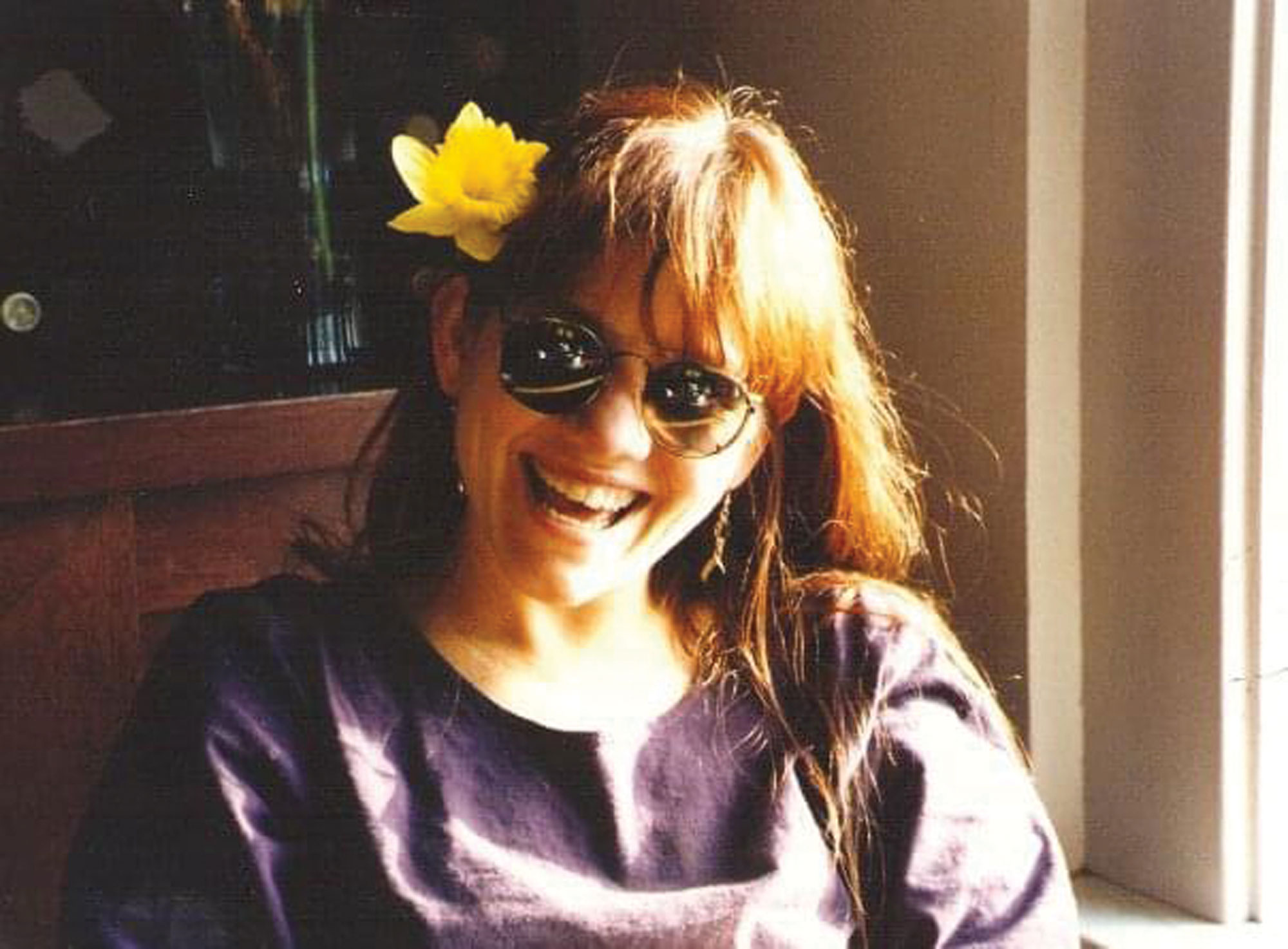
A music mover and shaker A music mover and shaker A music mover and shaker
Susie Tennant was beloved for discovering and promoting bands such as Nirvana, Sonic Youth and Beck.
By Derek Belt | June 2024 issue
In the hazy, grunge-filled landscape of Seattle's up-and-coming music scene in the early 1990s, one name stood out alongside the era’s distortion-filled guitars, riff-based rock melodies, and heavy vocals: music executive and promoter Susie Tennant, ’85.
A vibrant force with a deep passion for music, Tennant’s influence rippled through the Emerald City’s underground, leaving an indelible mark on legendary bands like Nirvana among many others. She was the Northwest radio promotion rep for Geffen Records when it signed Nirvana, and she worked closely with most of the label’s acts of the time, including Sonic Youth, Hole, Weezer, Beck, and more.
Born in Stuttgart, Germany as an army brat who moved seven times between 1962 and 1980, the West Seattle resident earned a communications degree from the University of Washington and went on to become a Geffen Records executive who played a large role in Nirvana’s climb to the top.
Tennant died in January at the age of 61 after several years living with a rare form of early onset dementia. News of her passing was mourned by friends, colleagues, and musicians alike. The outpouring of tributes from across the globe spoke volumes about the profound impact she had on the lives of those she touched.

According to Tennant’s husband Christopher Swenson, who took this photo, the most common words associated with Susie’s name, after “mother” and “friend,” are “champion, advocate and cheerleader.”
Her husband Christopher Swenson recalls, “The most common words used next to Susie’s name—after mother and friend—are champion, advocate, and cheerleader. Many remembrances of her point out that people wouldn’t be who or where they are, and institutions wouldn’t exist, were it not for her support and generosity. She used her remarkable social skills not for self-gain, but to empower others and build community.”
Tennant’s journey into the world of music was a fusion of fate and determination. In the early ’90s, as Seattle’s grunge movement began to gain momentum, Tennant found herself at the epicenter of it all. Armed with a keen eye for talent and an unyielding belief in the power of music, she immersed herself in the scene, forging lifelong connections with budding musicians and established bands.
One such band was Nirvana, a trio of misfits led by the enigmatic Kurt Cobain. As Nirvana’s star began its meteoric rise, Tennant played a pivotal role in their ascent, serving as a mentor, friend, and occasional fashion consultant.
In September 1991, Tennant organized the album release party for Nirvana’s “Nevermind” at the Seattle nightclub Re-bar. The band famously got kicked out of their own event for starting a food fight, but the party moved to Tennant’s house after that, where Cobain donned one of Tennant’s dresses.
In fact, Tennant’s eclectic wardrobe became a staple of Nirvana’s early look. The Stranger revealed in a 2024 celebration of Tennant’s life that some of Cobain’s most iconic dresses were sourced from her personal collection. The headline even proclaimed “Nirvana wore Susie Tennant’s dresses,” shedding some light on the unexpected synergy between grunge and glamour.
Tennant’s music career was astonishing, as she worked for Tower Records, Geffen/DGC Records (The David Geffen Company), Sub Pop, Experience Music Project (now MoPOP), KEXP, BMG, Town Hall Seattle and The Vera Project, where she was a champion for Seattle’s all-ages music scene.
Tennant’s keen business savvy and unwavering support for musicians provided a lifeline for countless bands struggling to navigate the industry. From negotiating record deals to booking gigs at local venues, she was a tireless advocate for Seattle’s burgeoning talent.
“There was no one in Seattle music that was as well-loved or as respected,” said Kim Warnick of the Seattle punk band the Fastbacks, who spoke with Nirvana biographer Charles R. Cross for a “Seattle Times” story honoring Tennant’s career. “Every person Susie worked with, or even met, became a friend. She was the unsung hero of Seattle music, and she brought that same love to everything and everyone. She was the glue that stuck Seattle together.”
Cross was a friend and longtime editor of “The Rocket,” a biweekly music magazine popular in Seattle in the 1980s and ‘90s. He told KUOW after Tennant’s passing: “She loved Nirvana and they loved her more than any person they ever dealt with in their entire career. Without Susie Tennant, without any doubt Nirvana wouldn’t have had success as quickly as they did.”
Amidst the glitz and glamour of the music business, Tennant remained humble, always deflecting attention away from herself and onto the artists she championed. She was a beloved figure who was revered not only for her contributions to the industry but for her warmth, generosity, and unwavering support of local artists.
“She was the unsung hero of Seattle music ... the glue that stuck Seattle together.”
Kim Warnick, the Fastbacks
When she was diagnosed with ovarian cancer in 2011, Nirvana’s Krist Novoselic and others played a benefit concert at EMP to help pay her medical expenses. Pearl Jam, Dave Grohl and other bands from around the world contributed as well.
Tennant’s community work and activism was just as impactful and included Music for Marriage Equality, which played a pivotal role in legalizing same-sex marriage in Washington state. She also co-founded the Ladies Who Lunch affinity group for women in the music and entertainment industry.
“Susie was more than a promo person. She loved the artists she worked with and they loved her back,” Marco Collins told The Stranger following her passing. Collins was a radio DJ on KNDD-FM 107.7 The End in the ‘90s and worked closely with Tennant on many occasions. “She was an ambassador for the Seattle music scene; she knew everyone and connected so many people.”
As the curtain falls on Tennant’s remarkable life, her legacy continues to reverberate through the halls of Seattle’s music scene and beyond. Her contributions live on in the songs she helped bring to life and the artists she nurtured along the way. “So few people in the music industry are decent human beings, let alone beacons of light,” said one commentor on The Stranger’s story remembering her life.
Tennant’s story isn’t just a testament to her love of music or business prowess—it’s a celebration a true Seattle legend and the transformative power of passion, perseverance, and personality.